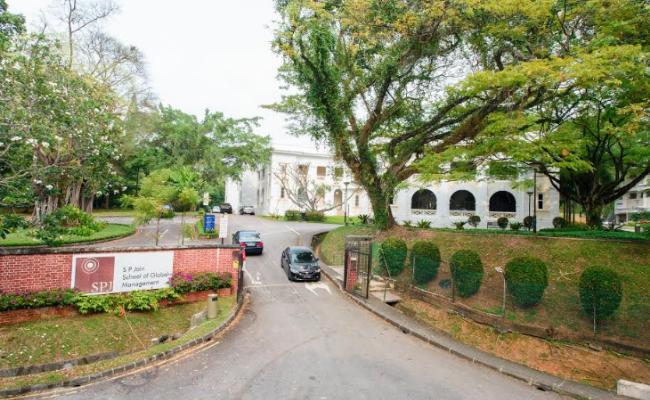
Over the years, the conservatively approached education system has been incredibly hard to disrupt.
The need to prepare young graduates for the future at an early stage has always been felt as a necessity but an outdated curriculum and out of place pedagogy posed a major threat and a key obstacle in overcoming the challenge. Thanks to the 4th industrial revolution, thinks have gradually changed.
The advent of the 4th industrial revolution has placed human skills at the forefront coupled with the advancement in technological platforms.
various global surveys revealed that nearly 85% of college freshmen admitting of getting a better job as an important element in their decision to join a college as compared with about 72% a decade earlier.
This clearly points out to return on investment (ROI) as a determining factor in choosing a college. The economic disruption brought about by the COVID pandemic have compelled everyone to move towards reskilling and upskilling.
It is clear by now that in future, it would be talent more than capital that will represent the critical success factor. So, is there a possibility to future proof careers and if so, how and how does management programs prepare students for global jobs and placements.
Today, in an era of information overload, digital intervention is reshaping the workforce and data is creating a more inclusive, agile and fair workplace.
Every employer places a premium on competencies and skills, that includes both technical abilities and cognitive skills such as critical thinking, problem-solving, collaboration and communication.
Added to this, there is an increased focus is on core competencies that include adaptability and analytical abilities, coupled with revamped career coaching and academic programming that aligns with them.
Business schools have responded to these growing needs through various placement readiness programs (PRP). Business schools are placing more focus on holistic learning that includes both behavioral and technical skills and interview preparedness through sustainable skill development and habit formation.
The emphasis is on delivering an agile and dedicated personalized attention for each student that is more customized to the specific needs. Programs that have clear goals and targets, with high levels of student commitment and continuous tracking and assessment of progress.
The world that we live in has become increasingly international. Thus, fostering a global mindset has become a critical factor is global survival.
Imagine a situation, where you are employed in a company when your suppliers are based in Asia, competitors are located Europe and the target markets span from Gulf to Africa, the preparedness for the job would require more than knowledge of the industry.
It may entail being equipped to understand the dynamics of global business ecosystem in different markets and respecting local cultures and priorities. It will also entail collaboration with colleagues in different time zones and get acquainted with unfamiliar perspectives and workplace practices. Put simply, a diverse, purpose-driven culture defines success.
To equip for such situations, students are exposed to global study destinations, international partner university collaborations and borderless projects and internships.
Various international surveys reveal that global experience as part of the program structure makes students more employable after they graduate. Data gathered from these survey reports indicate that a vast majority of graduates believed that international experience has given them an edge in finding a good job in their chosen career.
Students with international experience are more likely to be employed within six months of graduation than those without, and are much more likely to have international elements to their work.
Additionally, opting for on-campus leadership positions and connecting with alumni are other key strategies employed by graduates.
Summing up, the world is bracing up for a tectonic shift where outcomes would determine income, thinking without the box would replace thinking outside the box and a global citizen’s passport would have no color….
Dr. Arindam Banerjee, Associate Professor and Deputy Director (Dean) – MBA programs
SP Jain School of Global Management, Dubai
Stay connected with fellow students on PaGaLGuY for Ask SP Jain School of Global Management | Dubai, Singapore, Sydney: Official Admission Query Thread
